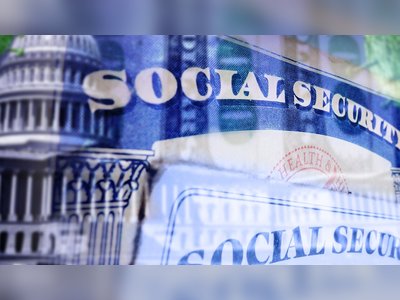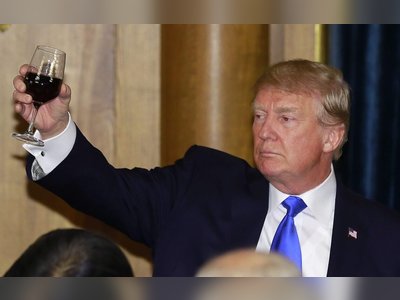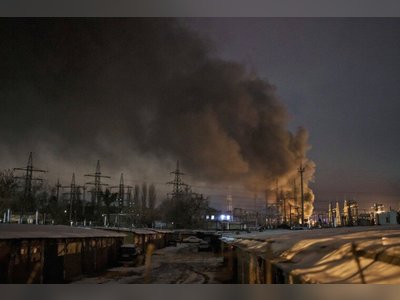Tensions Rise at the Synod of Bishops Over the Exclusion of Women's Diaconate Debate
Debate stifled as Pope Francis directs contentious issues to the Congregation for the Doctrine of the Faith, sidelining the Synod.
The recent sessions of the Synod of Bishops have been marked by mounting tensions over the exclusion of discussions on the ordination of female deacons.
This decision has sparked dissatisfaction among the attendees, revealing rifts within the Vatican's halls over the role of women in the Church.
The Synod, traditionally a forum for dialogue among bishops worldwide, has faced unexpected constraints following directives from Pope Francis to handle certain contentious topics through the Congregation for the Doctrine of the Faith, also known as the SANT’UFFICIO.
The tension reached a new height when it was revealed that the discussion on clerical celibacy was also deemed off the agenda by the Pope.
This move surprised many as this topic had been specifically slated for in-depth exploration following a session in October 2023. Though the participants initially had their expectations set for comprehensive discourse, the papal decision swiftly curtailed these plans.
The exclusion of women's diaconate from the Synod's discussions has become a particularly contentious point.
This topic forms a crucial part of the Instrumentum laboris, the foundational document underlying the current session.
This document emphasizes the Church's need to foster greater inclusion of women in ecclesiastical institutions and decision-making processes.
Many expected open and thorough discussions on these matters, aligned with the Synod's themes of 'Communion, Participation, Mission.' However, the decision by Pope Francis to direct this issue to a group under the oversight of the Congregation has raised eyebrows among progressive factions.
Cardinal Victor Manuel Fernandez, the Prefect of the Congregation, delivered a speech underscoring that the Pope does not view the issue as ready for further discussion.
While some viewed this as an opportunity for a future debate, hopes were soon dashed.
A subsequent communication from the Congregation clarified that the topic of women deacons was relegated to mere procedural consideration within their purview, not the Synod's.
This decision has stirred both reformist and moderate wings within the Church, both concerned about the diminished role of the Synod due to curial intervention.
Efforts were made to arrange a dialogue between synodal members and the Congregation.
However, these discussions have been conducted in a fragmented manner, with limited engagement and involvement of actual decision-makers like Cardinal Fernandez himself.
A fateful moment arrived on October 18th when an anticipated synodal debate was reduced to informal 'mini-discussions' across different groups, necessitating prior registration.
This bureaucratic layer left many members feeling their voices muted.
When Cardinal Fernandez finally addressed the assembly again, his reaffirmation that the issue of female diaconate remains stalled initiated further discontent among the participants.
He emphasized that solutions for women's full participation in the Church extend beyond ordination, hinting at alternate pathways not involving diaconate roles.
Looking forward, he solicited proposals from Synod members on broader topics concerning women's participation, though the immediacy and focus of diaconate discussion remain shelved.
As the last week of the Synod approaches, the handling of these sensitive issues—overlapping doctrinal considerations and clerical governance—will likely shape future assessments of this pivotal moment in Pope Francis's pontificate.
The developments at the Synod underscore critical dynamics within the Church at a time when its engagement with contemporary social questions faces intense scrutiny.
This decision has sparked dissatisfaction among the attendees, revealing rifts within the Vatican's halls over the role of women in the Church.
The Synod, traditionally a forum for dialogue among bishops worldwide, has faced unexpected constraints following directives from Pope Francis to handle certain contentious topics through the Congregation for the Doctrine of the Faith, also known as the SANT’UFFICIO.
The tension reached a new height when it was revealed that the discussion on clerical celibacy was also deemed off the agenda by the Pope.
This move surprised many as this topic had been specifically slated for in-depth exploration following a session in October 2023. Though the participants initially had their expectations set for comprehensive discourse, the papal decision swiftly curtailed these plans.
The exclusion of women's diaconate from the Synod's discussions has become a particularly contentious point.
This topic forms a crucial part of the Instrumentum laboris, the foundational document underlying the current session.
This document emphasizes the Church's need to foster greater inclusion of women in ecclesiastical institutions and decision-making processes.
Many expected open and thorough discussions on these matters, aligned with the Synod's themes of 'Communion, Participation, Mission.' However, the decision by Pope Francis to direct this issue to a group under the oversight of the Congregation has raised eyebrows among progressive factions.
Cardinal Victor Manuel Fernandez, the Prefect of the Congregation, delivered a speech underscoring that the Pope does not view the issue as ready for further discussion.
While some viewed this as an opportunity for a future debate, hopes were soon dashed.
A subsequent communication from the Congregation clarified that the topic of women deacons was relegated to mere procedural consideration within their purview, not the Synod's.
This decision has stirred both reformist and moderate wings within the Church, both concerned about the diminished role of the Synod due to curial intervention.
Efforts were made to arrange a dialogue between synodal members and the Congregation.
However, these discussions have been conducted in a fragmented manner, with limited engagement and involvement of actual decision-makers like Cardinal Fernandez himself.
A fateful moment arrived on October 18th when an anticipated synodal debate was reduced to informal 'mini-discussions' across different groups, necessitating prior registration.
This bureaucratic layer left many members feeling their voices muted.
When Cardinal Fernandez finally addressed the assembly again, his reaffirmation that the issue of female diaconate remains stalled initiated further discontent among the participants.
He emphasized that solutions for women's full participation in the Church extend beyond ordination, hinting at alternate pathways not involving diaconate roles.
Looking forward, he solicited proposals from Synod members on broader topics concerning women's participation, though the immediacy and focus of diaconate discussion remain shelved.
As the last week of the Synod approaches, the handling of these sensitive issues—overlapping doctrinal considerations and clerical governance—will likely shape future assessments of this pivotal moment in Pope Francis's pontificate.
The developments at the Synod underscore critical dynamics within the Church at a time when its engagement with contemporary social questions faces intense scrutiny.
Translation:
Translated by AI
AI Disclaimer: An advanced artificial intelligence (AI) system generated the content of this page on its own. This innovative technology conducts extensive research from a variety of reliable sources, performs rigorous fact-checking and verification, cleans up and balances biased or manipulated content, and presents a minimal factual summary that is just enough yet essential for you to function as an informed and educated citizen. Please keep in mind, however, that this system is an evolving technology, and as a result, the article may contain accidental inaccuracies or errors. We urge you to help us improve our site by reporting any inaccuracies you find using the "Contact Us" link at the bottom of this page. Your helpful feedback helps us improve our system and deliver more precise content. When you find an article of interest here, please look for the full and extensive coverage of this topic in traditional news sources, as they are written by professional journalists that we try to support, not replace. We appreciate your understanding and assistance.











